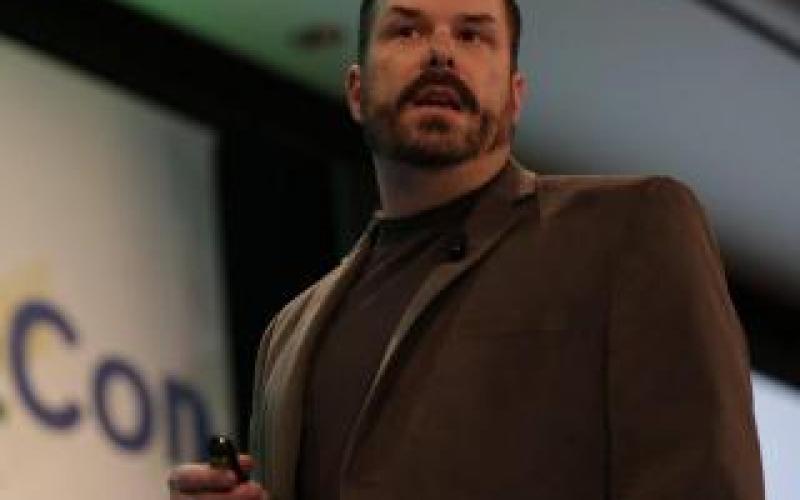Conference: Nov 5-7, 2018
Workshops: Nov 8–9, 2018
Track: Evolving Java
At well over 20 years old, Java continues to evolve & change. Track focuses on how Java is evolving and covers Spring 5, ASync, Kotlin, AI/ML applications, serverless, and the 6-month cadence plans.
Wes Reisz joined QCon in 2015 and leads QCon Editorial as the conference chair. Wes focuses his energies on providing a platform for practicing engineers to tell their war stories so innovative/early adopter stage engineers can learn, adopt, and, in many cases, challenge each other. Before joining the QCon Team, Wes held a variety of enterprise architecture and software development roles with HP. His focus with HP was around developing/federating identity, integration/development of Java stack applications, architecting portal/CM solutions, and delivering on mobility in places like US Army’s Human Resources Command (HRC), Army Recruiting Command, and Army Cadet Support Program. In 2002, Wes began teaching as an adjunct faculty member at the University of Louisville. He continues to teach 400-level web architecture and mobile development courses to undergraduates. He is currently teaching Mobile Application Development with Android.
by Roman Elizarov
Software Engineer Developing Kotlin @JetBrains
Asynchronous programming is on the rise. Modern software systems are connected and constantly communicating. Programming languages are adding some form of asynchronous programming like async/await. However, Kotlin had taken a fresh approach to this problem with Kotlin Coroutines.
In this talk, we’ll study various approaches to asynchronous programming, their evolution, differences and similarities. We’ll see the problem with...
by Ramki Ramakrishna
Staff Software Engineer @Twitter
Performance tuning of microservices in the data center is hard because of the multitude of available knobs, the large number of microservices and variation in work loads, all of which combine to make the problem combinatorially intractable. Maintaining optimal performance in the face of continuous upgrades to the service, and of the platform software and hardware, makes the problem even harder. As a result, lots of performance is typically left on the table, and data center resources wasted...
by Tal Weiss
Co-founder and CEO @OverOps
Microservices (and now serverless) pose a lot of interesting challenges when it comes to monitoring. Decoupling of code down to the "function" level offers a *lot* of interesting opportunities in terms of efficiently architecting code, but many a time does so at a loss of context. The lose of context makes monitoring of apps and performing Root Cause analysis of issues harder than what it used to be in monolithic (and even SOA) architectures. This talk condenses some of the serverless...
by Rossen Stoyanchev
Spring Framework Committer @Pivotal
When Netflix upgraded their main gateway, serving 83 million users, from Servlet based, blocking Zuul 1 to the Netty based, non-blocking Zuul 2, the results were interesting and nuanced with benefits and trade-offs. Spring Framework 5 provides a similar choice with Servlet based Spring MVC and the new reactive, web framework called Spring WebFlux.
How do you make sense of this choice? The key is to understand the trade-...
by Bernard Traversat
Head of the Java Platform Development Team & VP @Oracle
Join Bernard Traversat, Vice President of Java SE Development at Oracle to discuss migration strategies for Java 9 and the important of the new Java 9 module system to improve Java code upgradability. As the speed of deployment in the cloud is accelerating, the compatibility and upgradability of cloud services are becoming critical. The Java 9 modular runtime and module system provide a fundamental new way to assemble and protect compatibilities between Java code...
.
Tracks
-
Architectures You've Always Wondered About
Architectural practices from the world's most well-known properties, featuring startups, massive scale, evolving architectures, and software tools used by nearly all of us.
-
Going Serverless
Learn about the state of Serverless & how to successfully leverage it! Lessons learned in the track hit on security, scalability, IoT, and offer warnings to watch out for.
-
Microservices: Patterns and Practices
Stories of success and failure building modern Microservices, including event sourcing, reactive, decomposition, & more.
-
DevOps: You Build It, You Run It
Pushing DevOps beyond adoption into cultural change. Hear about designing resilience, managing alerting, CI/CD lessons, & security. Features lessons from open source, Linkedin, Netflix, Financial Times, & more.
-
The Art of Chaos Engineering
Failure is going to happen - Are you ready? Chaos engineering is an emerging discipline - What is the state of the art?
-
The Whole Engineer
Success as an engineer is more than writing code. Hear inward looking thoughts on inclusion, attitude, leadership, remote working, and not becoming the brilliant jerk.
-
Evolving Java
Java continues to evolve & change. Track covers Spring 5, async, Kotlin, serverless, the 6-month cadence plans, & AI/ML use cases.
-
Security: Attacking and Defending
Offense and defensive security evolution that application developers should know about including SGX Enclaves, effects of AI, software exploitation techniques, & crowd defense
-
The Practice & Frontiers of AI
Learn about machine learning in practice and on the horizon. Learn about ML at Quora, Uber's Michelangelo, ML workflow with Netflix Meson and topics on Bots, Conversational interfaces, automation, and deployment practices in the space.
-
21st Century Languages
Compile to Native, Microservices, Machine learning... tailor-made languages solving modern challenges, featuring use cases around Go, Rust, C#, and Elm.
-
Modern CS in the Real World
Applied trends in Computer Science that are likely to affect Software Engineers today. Topics include category theory, crypto, CRDT's, logic-based automated reasoning, and more.
-
Stream Processing In The Modern Age
Compelling applications of stream processing using Flink, Beam, Spark, Strymon & recent advances in the field, including Custom Windowing, Stateful Streaming, SQL over Streams.
-
Performance Mythbusting
Real world, applied performance proofs across stacks. Hear performance consideratiosn for .NET, Python, & Java. Learn performance use cases with OpenJ9, Instagram, and Netflix.
-
Tools and Culture: What's Beyond a Stack of Containers?
Containers are not just a techology. It's a platform. Push your knowledge.
-
Web as Platform
All things Browser, from JavaScript Frameworks for animation and AR / VR to Web Assembly and from protocol work to open standards evolution.
-
Beyond Being an Individual Contributor
Beyond being an individual contributor. Building and Evolving managers and tech leadership.
-
Building Great Engineering Cultures
Why engineering culture matters. Track features org scaling, memes as a culture tool, Ally skills, and panels on diversity / inclusion.
-
Hardware Frontiers: Changes Affecting Software Developers Today
Topics around: Quantum computing, NVM, SMR, GPU, custom hardware, self-driving cars, and mobile hardware.




